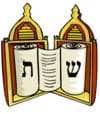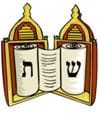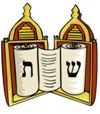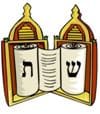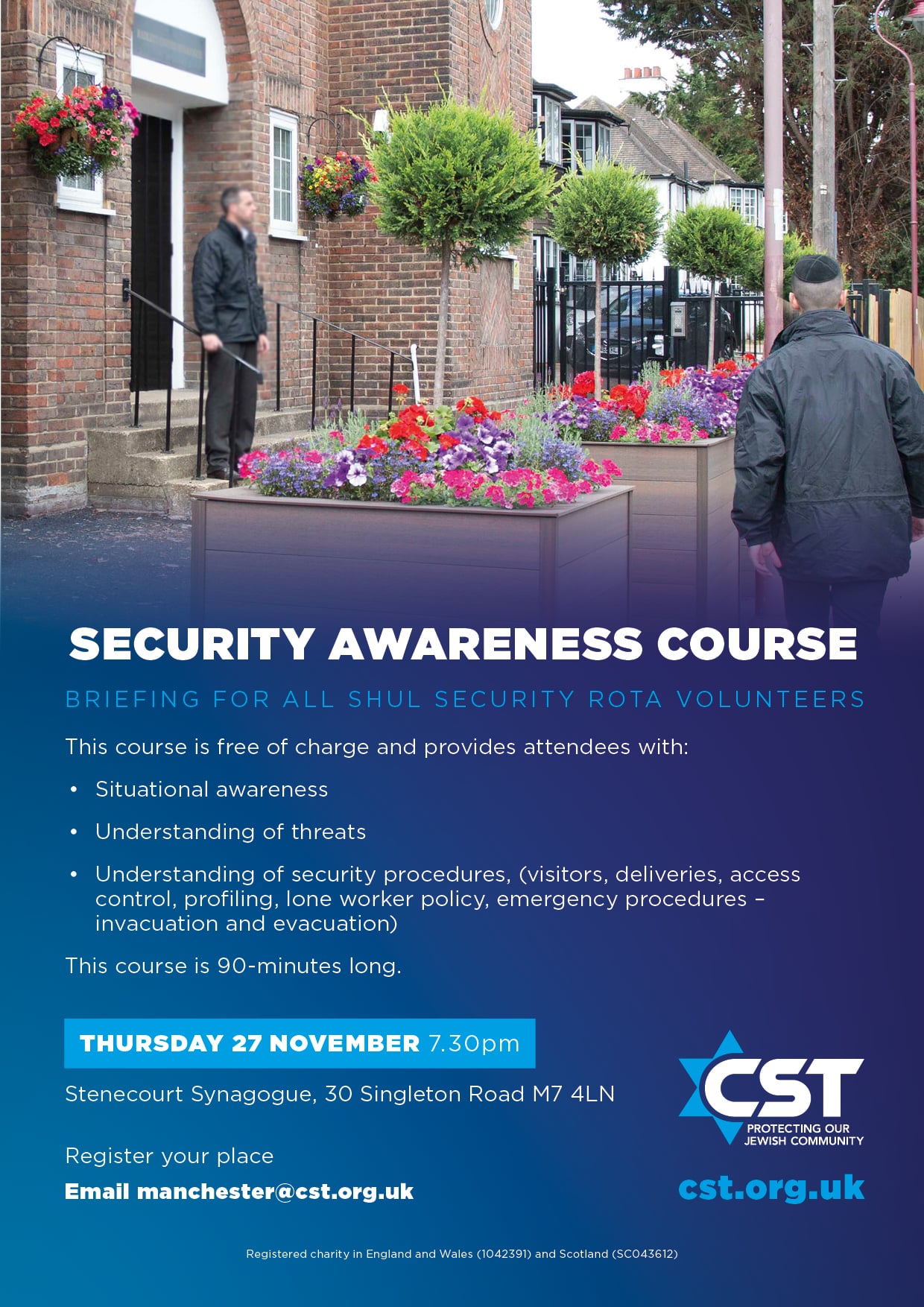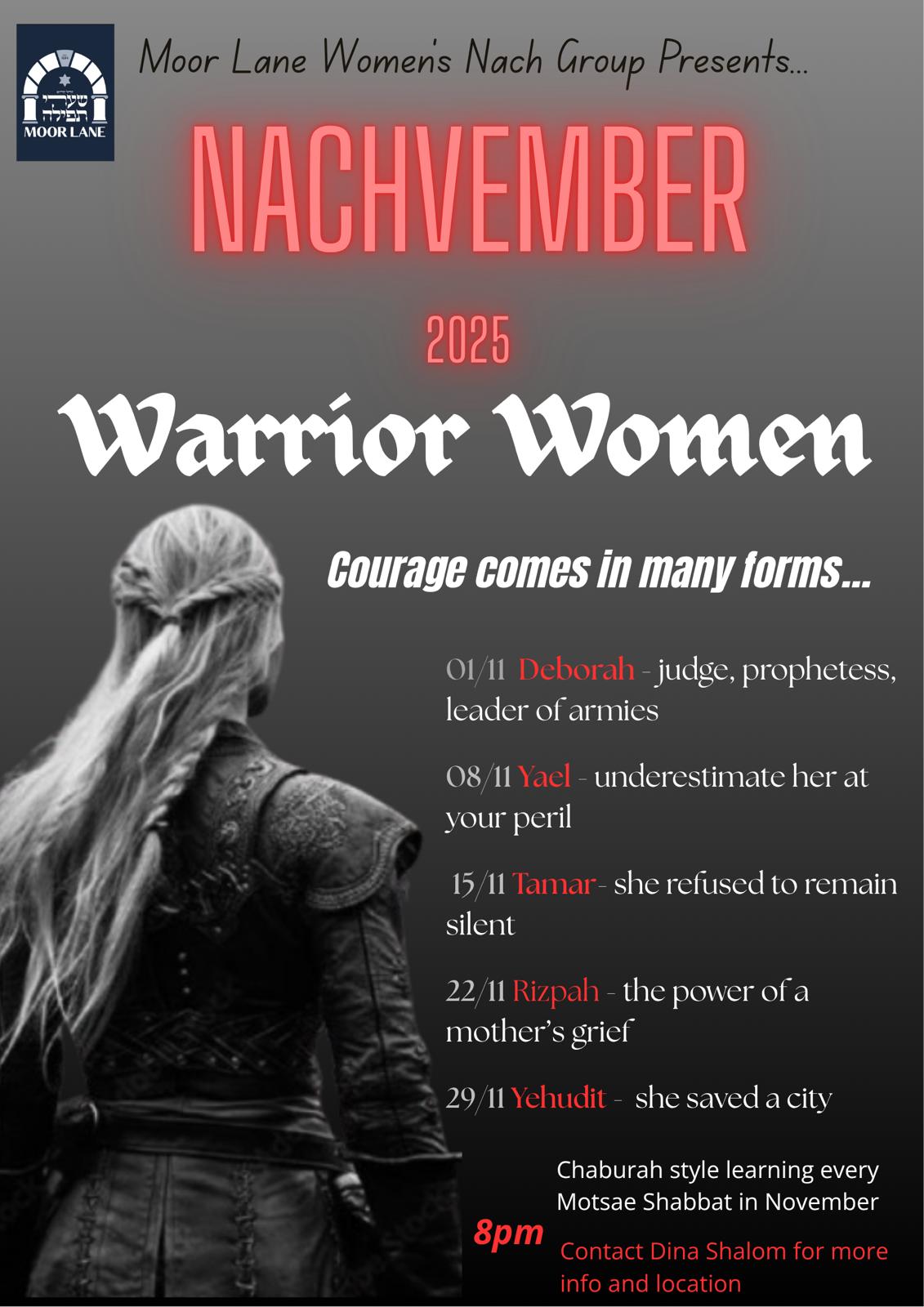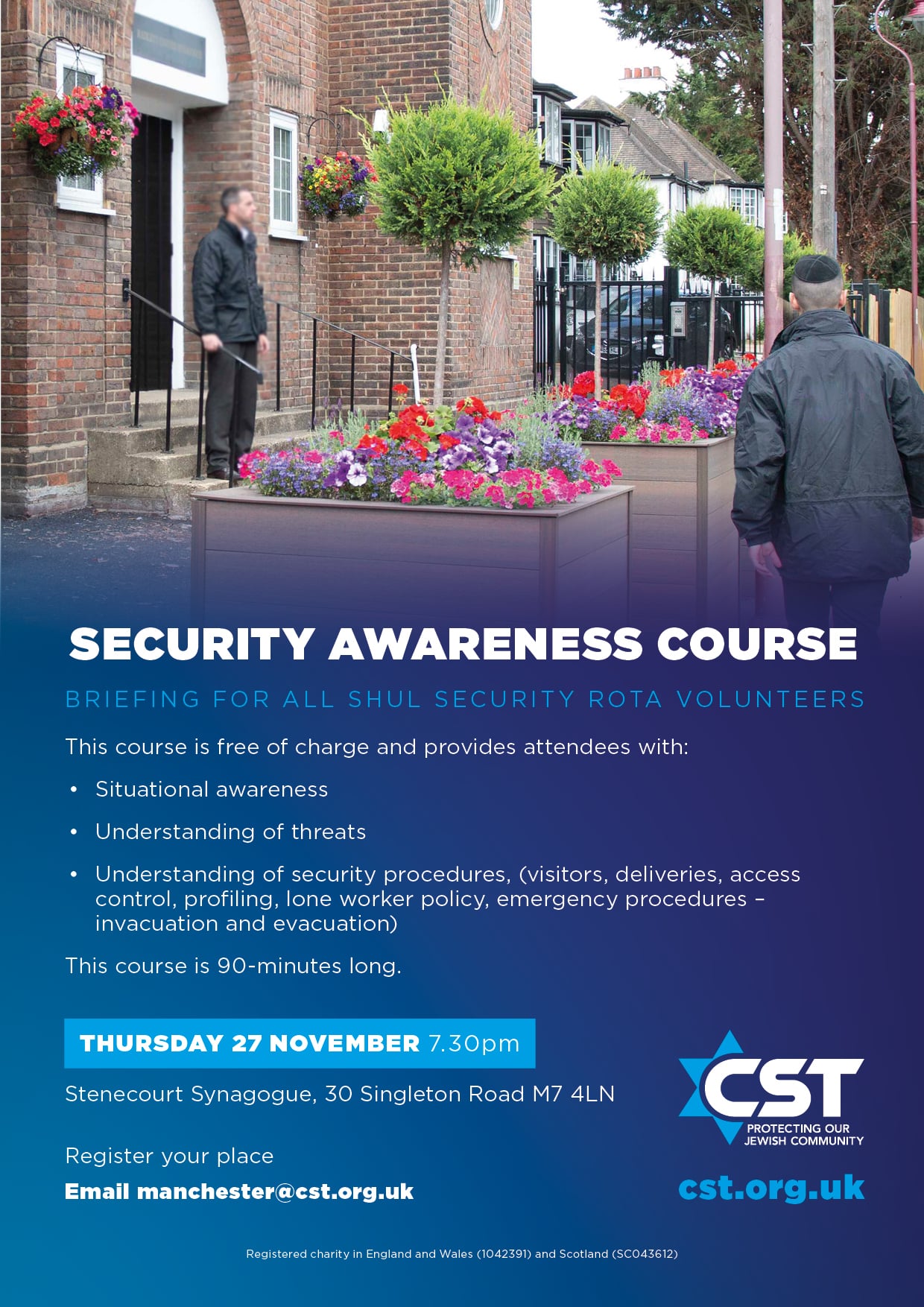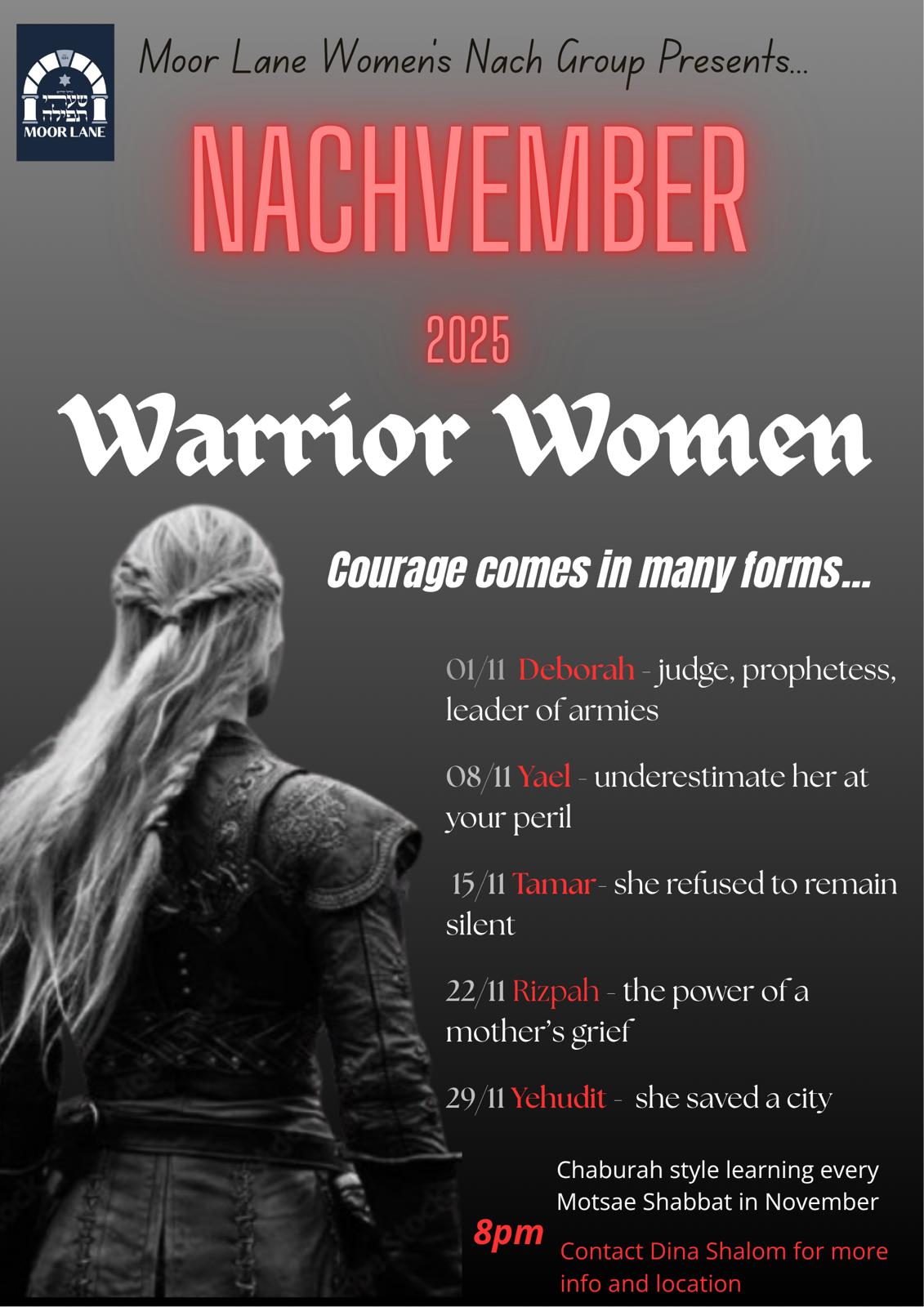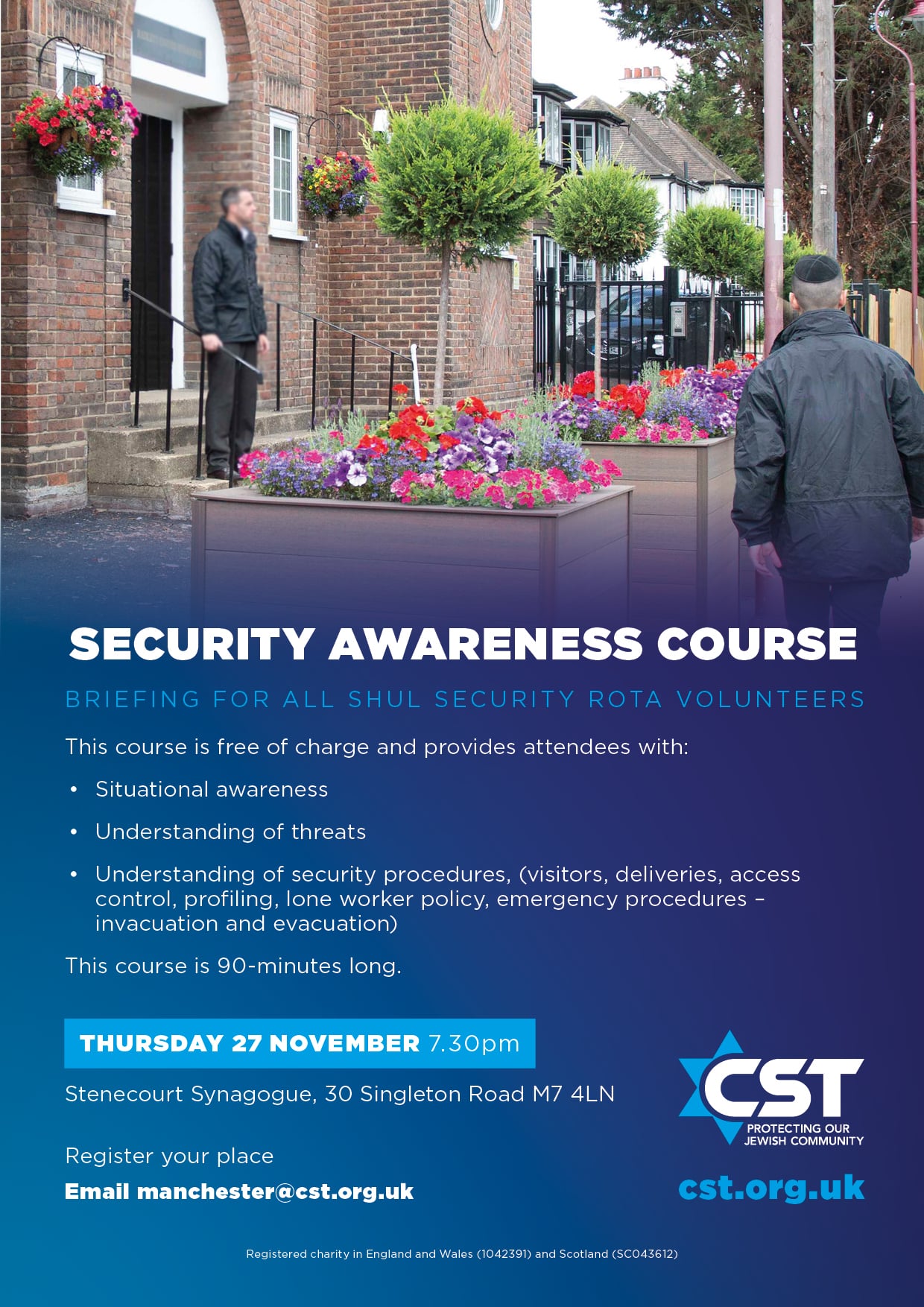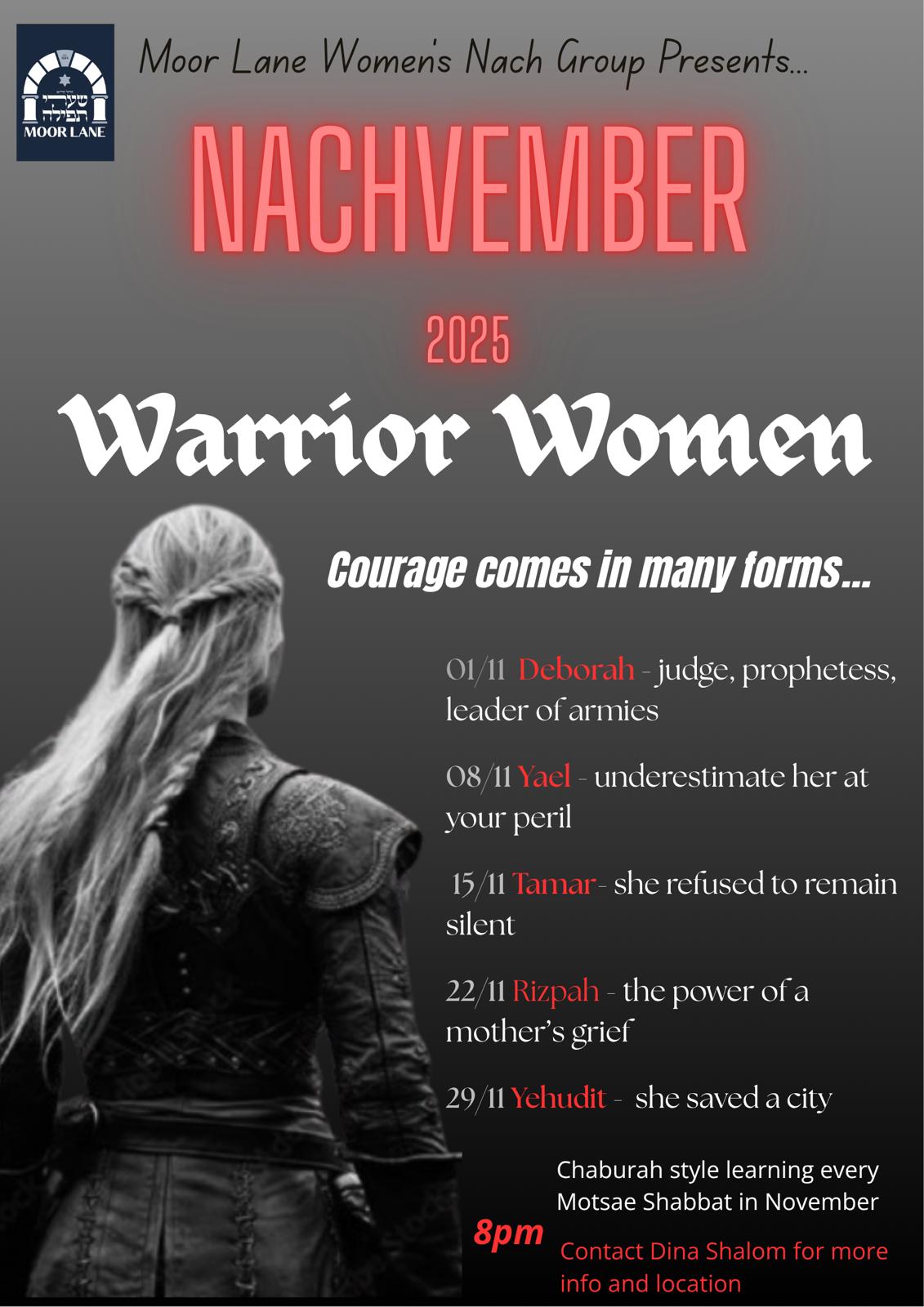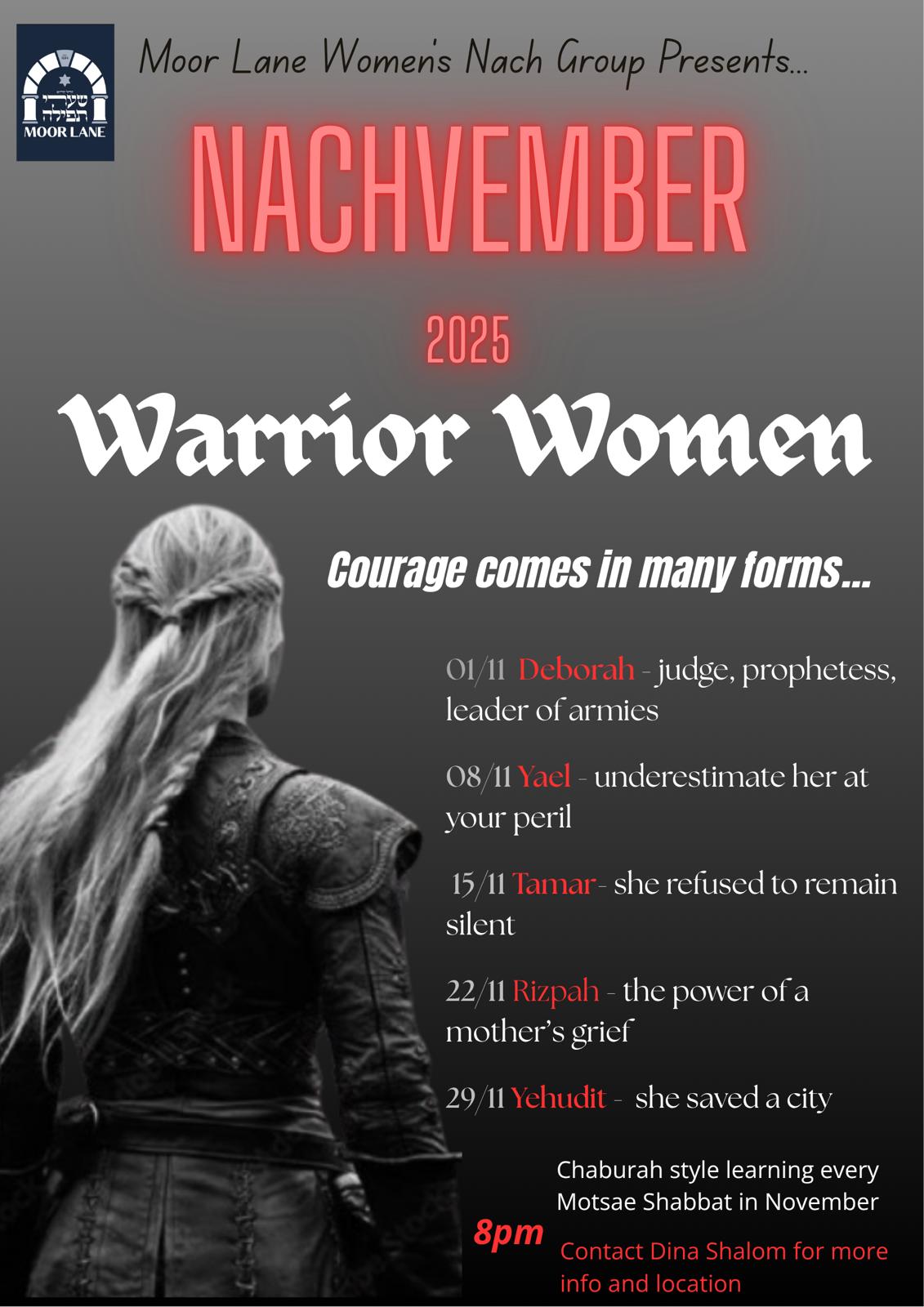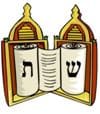


🗓️ Save the date 📝
Annual General Meeting 2026
Motzae Shabbat 10th January 2026 at 7:45 pm
Thank you in advance for attending – your support for this meeting is important.
On behalf of the Mahamad
*Nominations should reach the Hon. Secretary before Thursday, 8th January 2026.
YOU ARE RESPECTFULLY REMINDED THAT UNDER THE PROVISION OF ASCAMA 28 YEHIDIM BEING ARREARS IN THE PAYMENT OF THEIR ACCOUNT FOR A LONGER PERIOD THAN SIX MONTHS SHALL FORFEIT THE RIGHT OF VOTING AT ALL MEETINGS
PLEASE NOTE: VOTING IS BY ATTENDANCE ONLY – PROXY VOTES ARE NOT VALID FOR AGM’s
📝AGM Nominations form attached to this email
*****


לוח זמני תפלה לחורף תשפ״ו
Winter Timetable 5786 – 2025/26
מוצאי שבת | ערבית (מוצ״ש) | שקיעה | מנחה שבת | סוף זמן קריאת שמע | הדלקת נרות | מנחה וקבלת שבת | תאריך | שבת פרשת |
Shabbat Ends | Arbit | Sunset | Minha | Shema before | Candle Lighting | Minha & Kabbalat Shabbat | Date | Parasha |
PM | PM | PM | PM | AM | PM | PM |
|
|
5:01 | 4:57 | 4:01 | 3:25 | 10:19 | 3:46 | 3:46 | 2/3 Jan | ויחי |
*****
🕯️WINTER TIMES FOR SHABBAT MORNING🕯️
שבת
קרבנות
8:45 am
הודו
9:00 am
*****

********
After 17 years in Egypt, Yaakov senses his days drawing to a close and summons Yosef. He has Yosef swear to bury him in the Machpela Cave, the burial place of Adam and Chava, Avraham and Sarah, Yitzchak and Rivka.
Yaakov falls ill and Yosef brings to him his two sons, Ephraim and Menashe. Yaakov elevates Ephraim and Menashe to the status of his own sons, thus giving Yosef a double portion that removes the status of firstborn from Reuven. As Yaakov is blind from old age, Yosef leads his sons close to their grandfather. Yaakov kisses and hugs them. He had not thought to see his son Yosef again, let alone Yosef's children. Yaakov begins to bless them, giving precedence to Ephraim, the younger, but Yosef interrupts him and indicates that Menashe is the elder. Yaakov explains that he intends to bless Ephraim with his strong hand because Yehoshua will descend from him, and Yehoshua will be both the conqueror of Eretz Yisrael and the teacher of Torah to the Jewish People.
Yaakov summons the rest of his sons in order to bless them as well. Yaakov's blessing reflects the unique character and ability of each tribe, directing each one in its unique mission in serving G-d. Yaakov passes from this world at age 147. A tremendous procession accompanies his funeral cortege up from Egypt to his resting place in the Cave of Machpela in Chevron.
After Yaakov's passing, the brothers are concerned that Yosef will now take revenge on them. Yosef reassures them, even promising to support them and their families. Yosef lives out the rest of his years in Egypt, seeing Efraim's great-grandchildren. Before his death, Yosef foretells to his brothers that G-d will redeem them from Egypt. He makes them swear to bring his bones out of Egypt with them at that time. Yosef passes away at the age of 110 and is embalmed. Thus ends Sefer Bereishet, the first of the five Books of the Torah. Chazak
Ohr Somayach Institutions www.ohr.edu

תפילת התשלומין
שאלה: מי ששכח ולא התפלל תפילה אחת, וכבר עבר זמנה של אותה התפילה, מה דינו?
תשובה: אמרו רבותינו (מסכת ברכות דף כו.), טעה ולא התפלל שחרית, מתפלל במנחה שתים. כלומר, אדם שטעה ולא התפלל תפילה אחת, או שלא יכול היה להתפלל תפילה אחת מחמת אונס (כלומר, לא בכוונה או בפשיעה, אלא מחמת שכחה וכדומה), צריך להשלים תפילתו אחרי התפילה הבאה שמתפלל, שכך תקנו חכמים, שאדם זה חייב להשלים תפילתו. ולכן אם שכח להתפלל שחרית, מתפלל תפילת מנחה ומיד כשמסיים תפילת מנחה, לאחר שממתין כמה שניות (כדי שהתפילה השנייה תהיה בישוב הדעת), מתפלל שוב תפילת שמונה עשרה, כתשלומין על תפילת שחרית.
ותפילת התשלומין, היא דוקא תפילת שמונה עשרה, אבל שאר התפילה, כגון קריאת שמע וברכותיה ופסוקי דזמרה וכדומה, אין להם תשלומין כלל, וכל שעבר זמנם הפסיד המצוה.
לכן מי ששכח להתפלל שחרית, עליו לחזור ולהתפלל תפילת שמונה עשרה מיד כשיסיים את תפילת המנחה, שאז יעמוד ויתפלל שוב תפילת העמידה לשם תשלומין על שחרית שלא התפלל.
ולסיכום: מי ששכח להתפלל תפילה אחת, לדוגמא, תפילת שחרית, עליו להשלים את תפילתו לאחר מכן, שלאחר שיתפלל תפילת מנחה, ימתין כמה שניות, ואז יתפלל שוב תפילת העמידה כתשלומין לתפילת שחרית.
The Laws of a Compensatory Prayer
Question: If one forgets to pray a certain prayer and the time for reciting that prayer has already passed, what is the proper procedure?
Answer: Our Sages taught (Berachot 26b): “One who has erred and has not prayed Shacharit should pray Mincha twice.” This means that if one mistakenly has not prayed one prayer or if one has not prayed a certain prayer because of circumstances beyond one’s control, one must compensate this prayer after having recited the next prayer one prays, for our Sages have established that one must compensate one’s prayer. Thus, if one forgets to pray Shacharit, one should pray Mincha prayers and immediately after doing so, one must recite the Amida prayer again as compensation for the Shacharit prayer which one has missed.
The compensatory prayer applies only to the Amida prayer; however, the rest of the prayer, such as Keri’at Shema and its blessings, Pesukei De’Zimra, and the like, cannot be compensated for and once their time has passed, one has missed out on this Mitzvah.
Thus, one who forgets to pray Shacharit should repeat the Amida immediately after concluding the Mincha prayer and this will compensate for the Shacharit prayer one missed.
The Law Regarding Women
Maran zt”l writes that just as a man who missed a given prayer must compensate for it during the next prayer, so too, a woman who customarily prays a set prayer, such as Shacharit, and it happened that she had forgotten to pray, may likewise compensate for this prayer by reciting the Mincha prayer twice.
Summary: If one forgets to pray any given prayer, such as Shacharit, one must compensate for this prayer after praying Mincha, i.e. after concluding the Mincha Amida prayer, one should wait several seconds and then recite the Amida prayer again in compensation for Shacharit.
